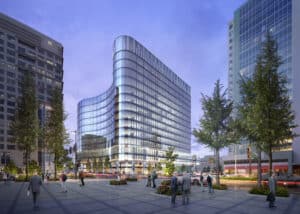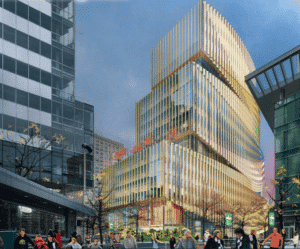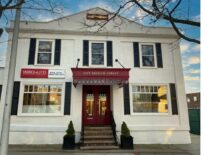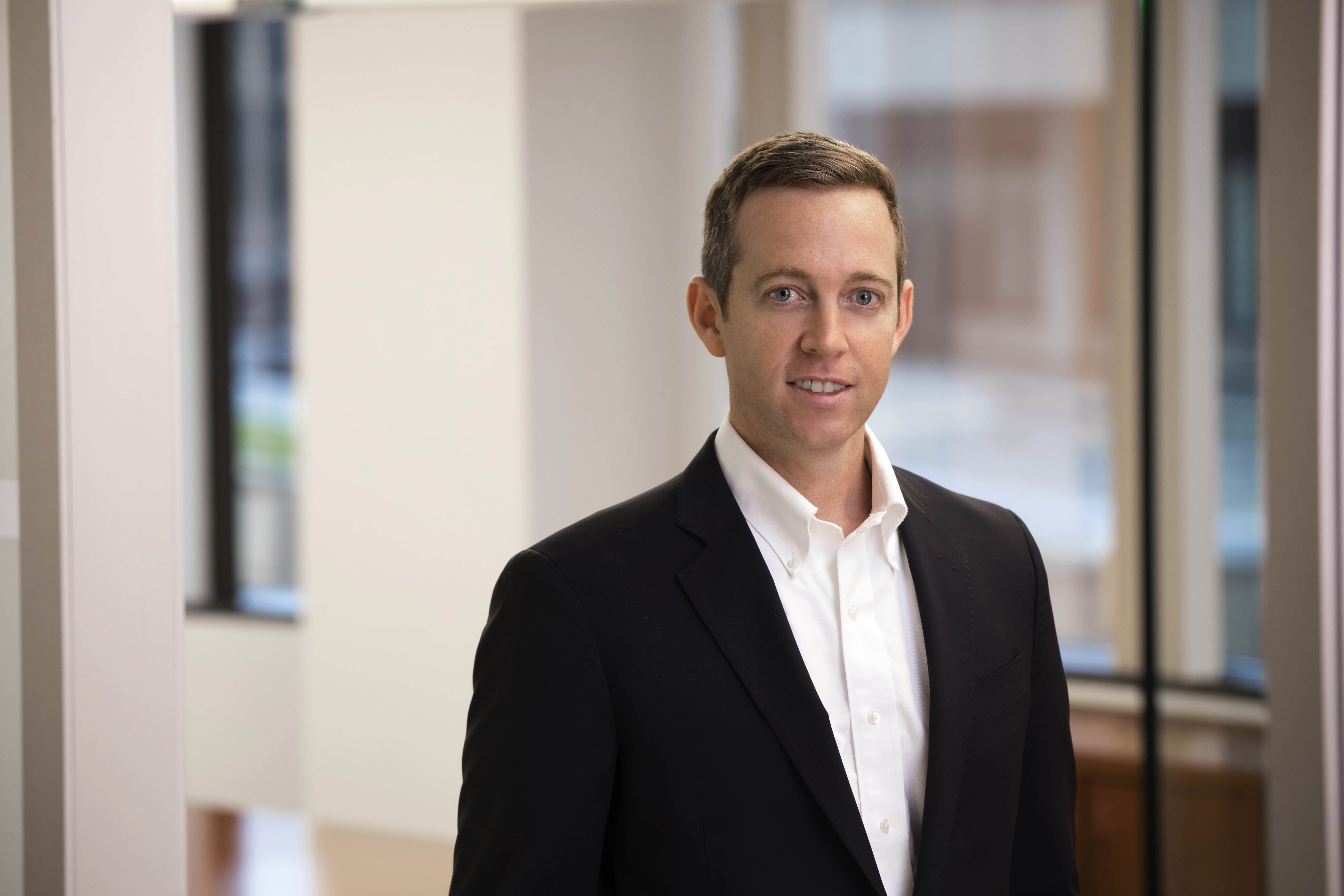
BioMed Realty has been scooping up commercial properties in Boston and Cambridge including the former John Hancock headquarters in the Seaport District, backed by a new $14.6 billion fund for investors who want to profit from the biotech boom. Image courtesy of BioMed Realty
Investors in life science developer BioMed Realty’s parent, a Blackstone Real Estate fund, were in no hurry to cash out and take their profits in 2020 as the pandemic was making the biopharma sector more attractive than ever.
So private equity giant Blackstone gave them a new option: Rolling BioMed Realty into a new “perpetual capital” fund with no expiration date, and the opportunity for long-term ownership of a large R&D portfolio in high-rent, low-vacancy life science clusters including Boston and Cambridge.
“The genesis for this transaction was: A number of our investors in the fund wanted to continue to own this,” Blackstone CEO Stephen Schwarzman said in a conference call on the firm’s quarterly earnings last week. “That was really the catalyst, because they were so enthused about this, and it made a lot of sense to us.”
More than 70 percent of the investors in the Blackstone Real Estate Partners VIII fund – which launched in 2015 and acquired BioMed Realty in 2016 for $8 billion – opted to invest in the new fund, BPP Life Sciences. Valued at $14.6 billion, the fund will seek additional capital, including potential sources beyond institutional investors, Blackstone executives said.
“We’ll raise additional capital, and the potential for this to grow is quite large,” Schwarzman said.
A Play for Advantage
The recapitalization gives BioMed the ability to control a life science portfolio for the long haul and retain tenants who need to scale up quickly, said Frank Petz, managing director of investment sales for Colliers Boston.
“Part of the game in life science is tenant control,” Petz said. “If you can control a large portfolio of life science, you can control those tenants, because they’re very dynamic. They can grow and shrink dramatically, and you want to have a large enough portfolio to offer them options.”
Blackstone refers to such funds without exit dates as “perpetual capital platforms.” Executives have pointed to them as a growth opportunity for the firm, because they generate steady streams of fee income and don’t rely on asset sales to boost earnings.
“It allows you the ultimate flexibility in the long term,” Petz said. “You can hold forever, you can sell, and you can go public.”
The long-term hold option helps BioMed compete against rivals such as Alexandria Real Estate Equities, a life science REIT that owns approximately 8.6 million square feet of properties in Greater Boston and rarely divests holdings, said Ben Sayles, managing director of capital markets at JLL Boston.
“It’s Blackstone and they do things nobody else is able to do. The new fund has no exit and is valued every quarter, so investors can come in and go [out] as they please,” Sayles said.

BioMed Realty’s investments across Greater Boston comes as it pursues a marquee development in Cambridge’s Kendall Square, the combined lab-and-arts tower at 585 Third St. Image courtesy of CBT Architects
Cambridge’s Largest Landlord
BioMed has wasted little time in putting the fresh capital to work, snapping up a 2.3 million-square-foot portfolio in East Cambridge for $3.45 billion in December to eclipse Alexandria as the city’s largest biotech landlord. It followed that up with the $326 million acquisition of the former John Hancock headquarters in Boston’s Seaport District and a $163 million purchase of a 1.3 million-square-foot development site in Somerville’s Assembly Square.
The transactions give San Diego-based BioMed ownership of 38 office-lab properties totaling over 6 million square feet in Greater Boston alone. The Massachusetts holdings comprise more than half of its 11.4 million-square foot portfolio, which also includes the San Francisco, San Diego, Seattle and Cambridge, U.K. markets.
The new financial model comes as BioMed pursues a signature development in high-barrier-to-entry East Cambridge, where it’s seeking approval for a 16-story, 550,000-square-foot life science building and performing arts center at 585 Third St.
In December, Cambridge city councilors unanimously voted to rezone the property to accommodate the project, designed by Boston-based CBT Architects. The decision clears the way for BioMed to seek a special permit from the planning board, said Salvatore Zinno, BioMed’s vice president of development. BioMed hopes to break ground in late 2022.
One sticking point during predevelopment was BioMed’s search for a replacement site for a natural gas transfer station located on an adjacent 14,000-square-foot parcel, which enabled BioMed to expand the project from 450,000 to 525,000 square feet. In June, BioMed secured an option to relocate the utility station to a small parcel behind 500 Kendall St.

Steve Adams
BioMed acquired the main 0.8-acre parcel for $50.5 million from a previous developer who had planned an arts center, and agreed to include theater space to offset the loss of cultural venues in Cambridge due to skyrocketing commercial rents. The current proposal includes 30,000 square feet of performing arts and support spaces on the second and third floors, along with 15,000 square feet of ground-floor public space including a movie screening area.
The arts component will double as amenity space for future lab tenants, a component of life science projects that’s been overlooked in comparison with office developers’ aggressive strategies.
“There’s definitely a shift there. A lot of people were focused on, ‘How efficient is my space?’ Now people have come to appreciate the amenities, and the talent they’re trying to attract is going to as well,” Zinno said. “This venue has the potential to change Kendall Square from a 9-to-5 space to a place you can spend more free time.”






